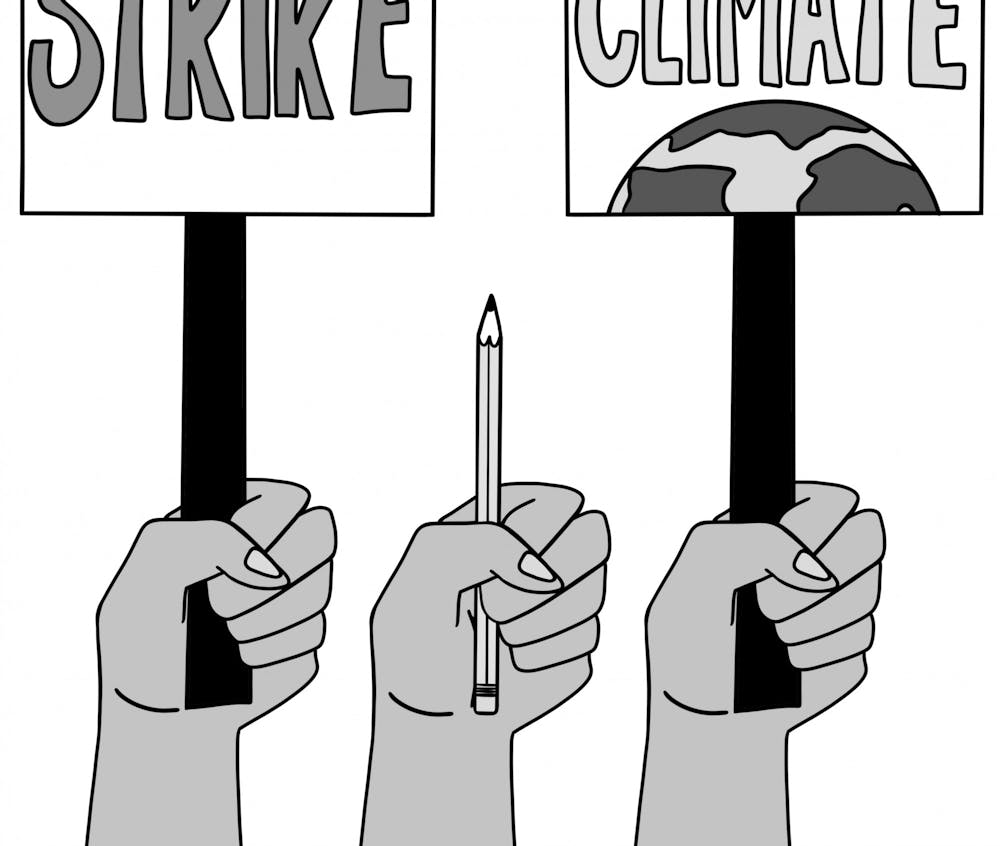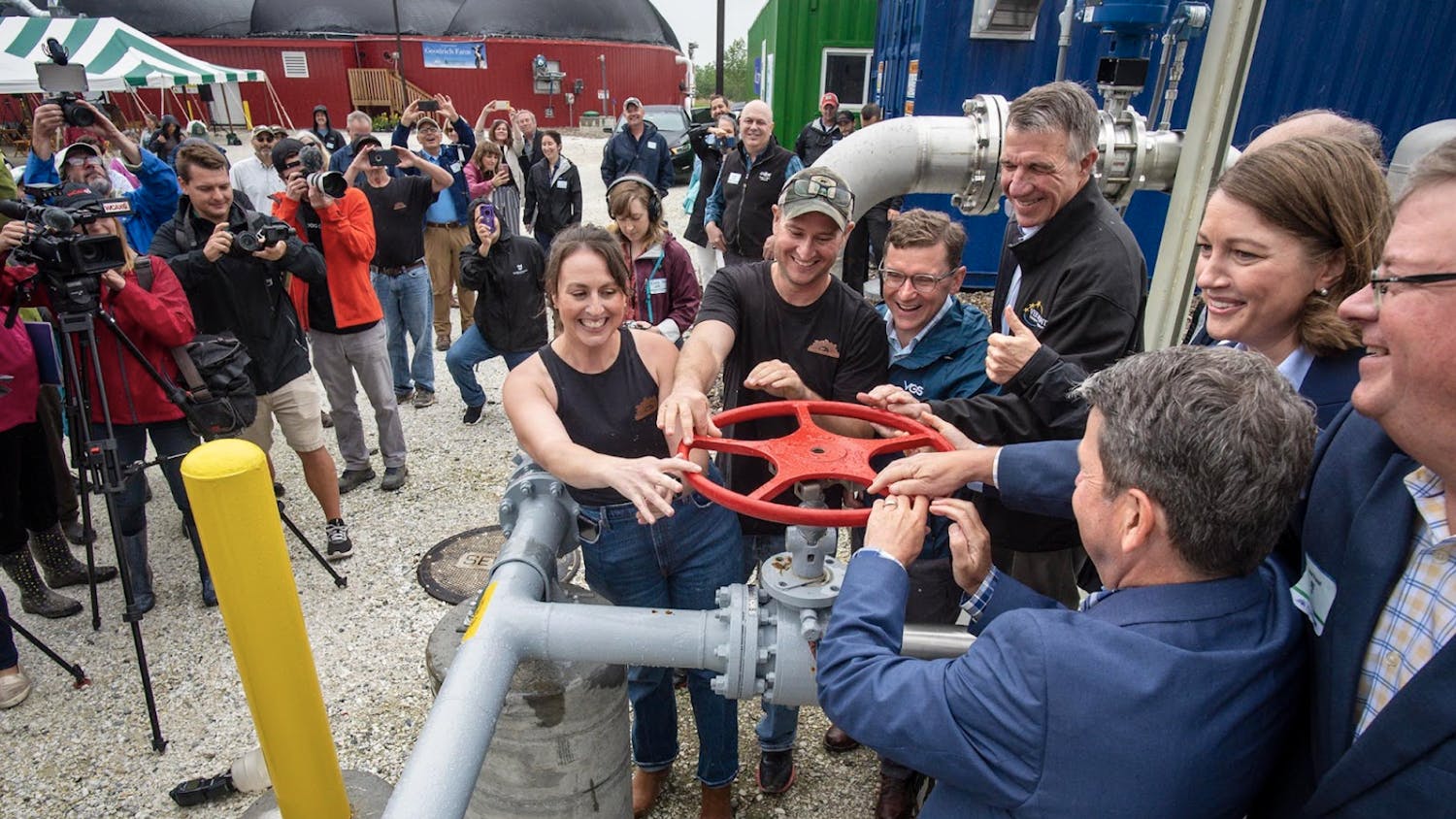Content Warning: This op-ed contains mentions of a hunger strike.
It is time that I wrote. I’ve pushed it off for years, then dabbled, pushed, and dabbled. Writing was different from activism. It felt frivolous and assuming, yet as familiar as my own skin. Perhaps that quote about our greatest fear not being our own inadequacy but our true potential is true.
Organizing, on the other hand, did not come naturally to me. Organizing means talking to people, asking them to do things for you, and as a woman, it’s safe to say I have a severe aversion to “making the hard ask,” which means asking people what they want and then asking them if they are willing to take the necessary steps to achieve that. Despite this, I started organizing for climate justice three years ago and can’t help but keep coming back.
From October 20 to November 2, five young organizers with the Sunrise Movement held a hunger strike in Washington, DC. Their demand was for President Joe Biden to whip Senators Joe Manchin (WV) and Kyrsten Sinema (AZ) into passing the Build Back Better Act before passing the Bipartisan Infrastructure Framework. If you are a human, this is an important and historical occasion for you, so listen up.
Five young adults — Abby, Kidus, Ema, Julie and Paul — risked their health and their lives. At the moment I’m writing this, they haven’t eaten in 14 days. Their bodies are consuming their muscles for energy to keep their organs functioning. This is dark stuff — abyss stuff — but I beg you to not turn away if you can help it.
These incredible individuals are making this sacrifice, making their pain visible for the nation to see to advocate for passing the Build Back Better Act. The Act would allocate $550 billion dollars to stopping the climate crisis and would employ 300,000 people in good-paying green jobs. It would provide grants for environmental justice groups, reduce pollution in ports and majority-BIPOC communities, restore coastlines, fund clean transit — I could go on.
This bill is a step toward a future where our generation chooses to have kids because we know they’ll be safe, that they’ll have access to clean water, air and food, and that we can have good-paying jobs in communities. Frontline and marginalized communities don’t have to be sacrificial for the benefit of the white, wealthy elite who have been profiting from cuts in public spending for the past 50 years. Abby, Kidus, Ema, Paul and Julie are making that sacrifice for us now, so we can dream of farming jobs in regenerative agriculture, tech jobs in the clean energy industry, and access to the unpolluted outdoors, instead of fearing the rising sea levels, encroaching wildfires, and increasing food prices that will hurt poor, working class and BIPOC-majority communities first.
This is our shot. This bill has been in the works since Biden stepped into the Oval Office. If we don’t pass something that will materially benefit people in this country from all walks of life, Democrats could lose Congress in 2022, and then we are back at square one with the 2030 deadline to decarbonize our economy encroaching on our doorsteps. This act is our future, our health and our safety from climate catastrophe.
Writing is my organizing, my vocation that will support this movement. It is where I feel most powerful, and I have to say, writing this has brought me sheer joy. This op-ed is my seed I’m planting in your brains. I dare to ask the question: What is your vocation? What is the thing you can do while the strikers starve and I write? Maybe it is organizing — talking to your peers, planning protests. Maybe it’s trainings or music or community work. All I ask is that you stay with me on the edge of the abyss and the future. Dare with me to believe that the two are different things — that if you pick up the phone or the pen or the violin, you can plant your own seed. Are you afraid that you are inadequate? Or are you afraid that you are powerful beyond measure?
Not all of us can go on hunger strike, but I ask you, what can you do? Can you call Senators Manchin and Sinema? Can you tweet, have your friends make calls, write an op-ed in your hometown paper, come to a Sunrise Middlebury meeting? This is a moment of history. This is the time, if there ever was one, to make that final push, to ask yourself what you are capable of and willing to do. Anything can be the seed from which our livable future grows.



